Beats for Planet:
Schools Have Their Say
Celebrating its 3rd anniversary, we interview the participating schools in this program.


Beats for Planet is celebrating its third anniversary. During this period, Airscan and Belfius have helped 75 schools in Belgium to map and improve air quality, both inside and outside the school.
Thanks to its cutting-edge technology and expertise, Airscan has guided school principals, prevention advisors, teachers and students towards better air quality, aiming to improve not only students’ health but also their performance at school.
Today, we’re giving the floor to a few school headmasters:
- Peter Croughs from De Dolfijn
- Tin Nicasi from VBS De Ceder
- Joris Clemminck from VLOT !
- Flavie Hozay from Ecole Libre Henri Hennequin

Why did you decide to take part in the project?
Peter: As the school is located close to an industrial area, we were curious to find out what impact this had on the air outside our playground. We also thought it would be interesting to have a clear picture of the air quality in our classrooms and gymnasium.
Joris: The Covid pandemic prompted us to monitor the air quality in every classroom and we found that the results were not good: monitoring air quality proved to be more difficult than we thought. Airscan gave us the opportunity to work on this in a more thorough and structured way. We also found that the fact that students in courses with a lot of science and/or maths could work with the test results was an absolute added value.
Tin: We were very interested in analysing the air quality in the classrooms, but we don’t have the budget for such a project. Thanks to Airscan and Belfius, we were able to carry it out free of charge.
How has the project affected the way the school operates?
Peter: Thanks to the Airscan project, we’ve been able to get a better idea of how our new ventilation systems work, and make the necessary adjustments to ensure that they operate as optimally as possible.
Joris: The students have started to work on the subject, and one of them has even written his thesis based on the results of the campaign. I’m convinced that teachers who teach in classrooms equipped with an Airscan device are more aware of air quality than those who don’t have one.
Flavie: We now pay more attention to classroom ventilation, which is important for creating a healthy learning environment, even during the winter months.
I’m convinced that teachers who teach in classrooms equipped with an Airscan device are more aware of air quality.
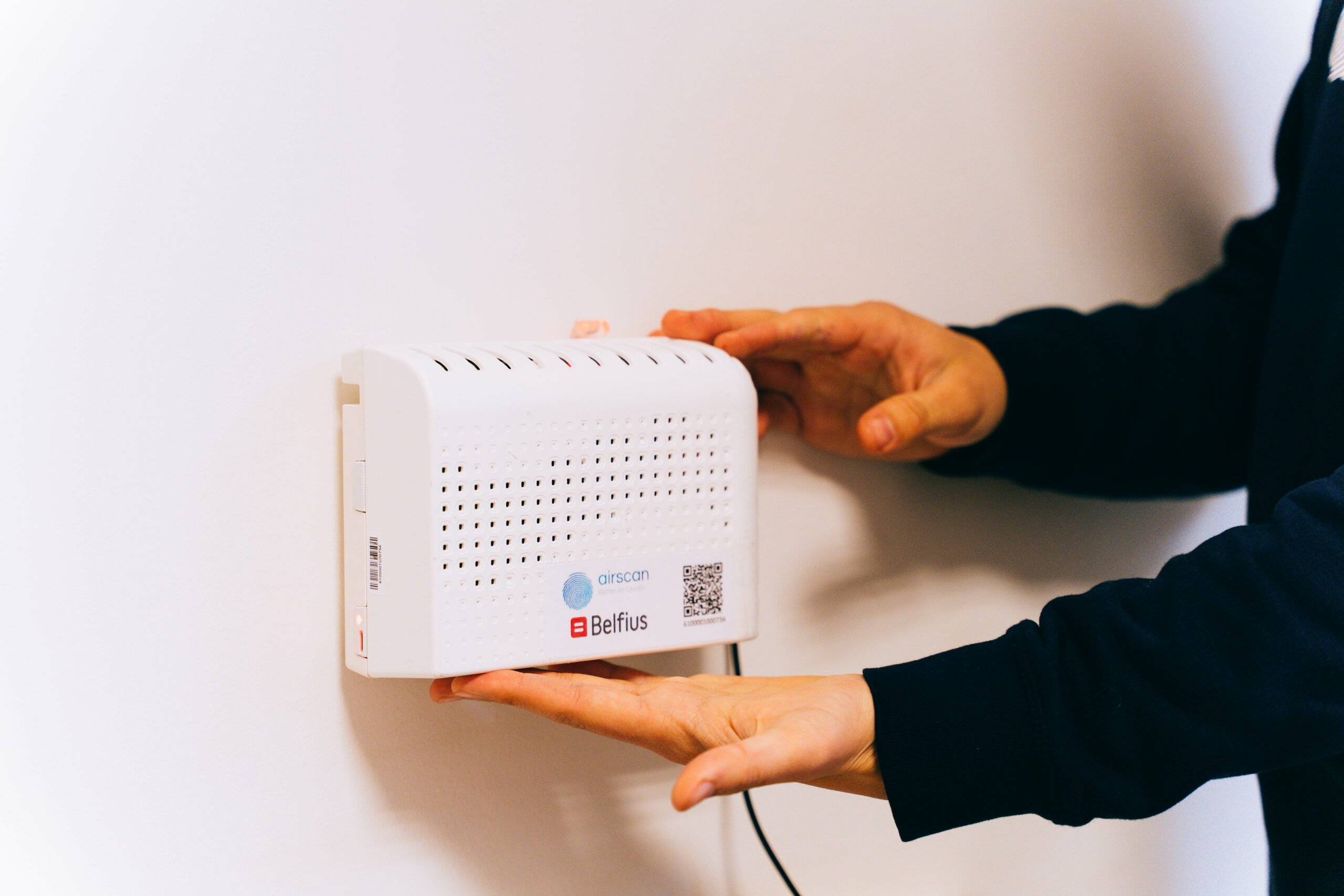
What advice and recommendations will you be implementing in the school to improve air quality?
Tin: Thanks to the project, we’ve noticed that intensive ventilation during playtime considerably improves air quality, which we’ll continue to do. We will also continue to use the CO2 meters to ventilate the room when necessary.
Joris: It’s useful to ventilate briefly (during a break) but intensively. We now know that this doesn’t affect the room temperature too much. We’re also trying to find out why the concentrations of fine dust were sometimes so high in one of our classrooms. This is probably due to the fact that this classroom has not been cleaned sufficiently. We are in the process of remedying this.
What do you see as the main obstacles to improving air quality?
Peter: Striking a balance between comfort (warm temperature), health (sufficient ventilation) and energy (heating). This can be difficult, especially during the winter months. Thanks to the real-time data we received as part of the Airscan project, we have developed a ventilation strategy that involves brief and intensive ventilating during peak moments, thereby losing a minimum of heat while ensuring healthy indoor air.
Tin: Ensuring good air quality when there are a lot of students in a confined space is not easy. Especially in winter, when it’s cold outside, it’s difficult to ventilate enough without wasting a lot of energy. We also find that some teachers need an extra helping hand when it comes to monitoring air quality.
Flavie: The winter months are the biggest challenge for us, because it’s more difficult to ventilate regularly.
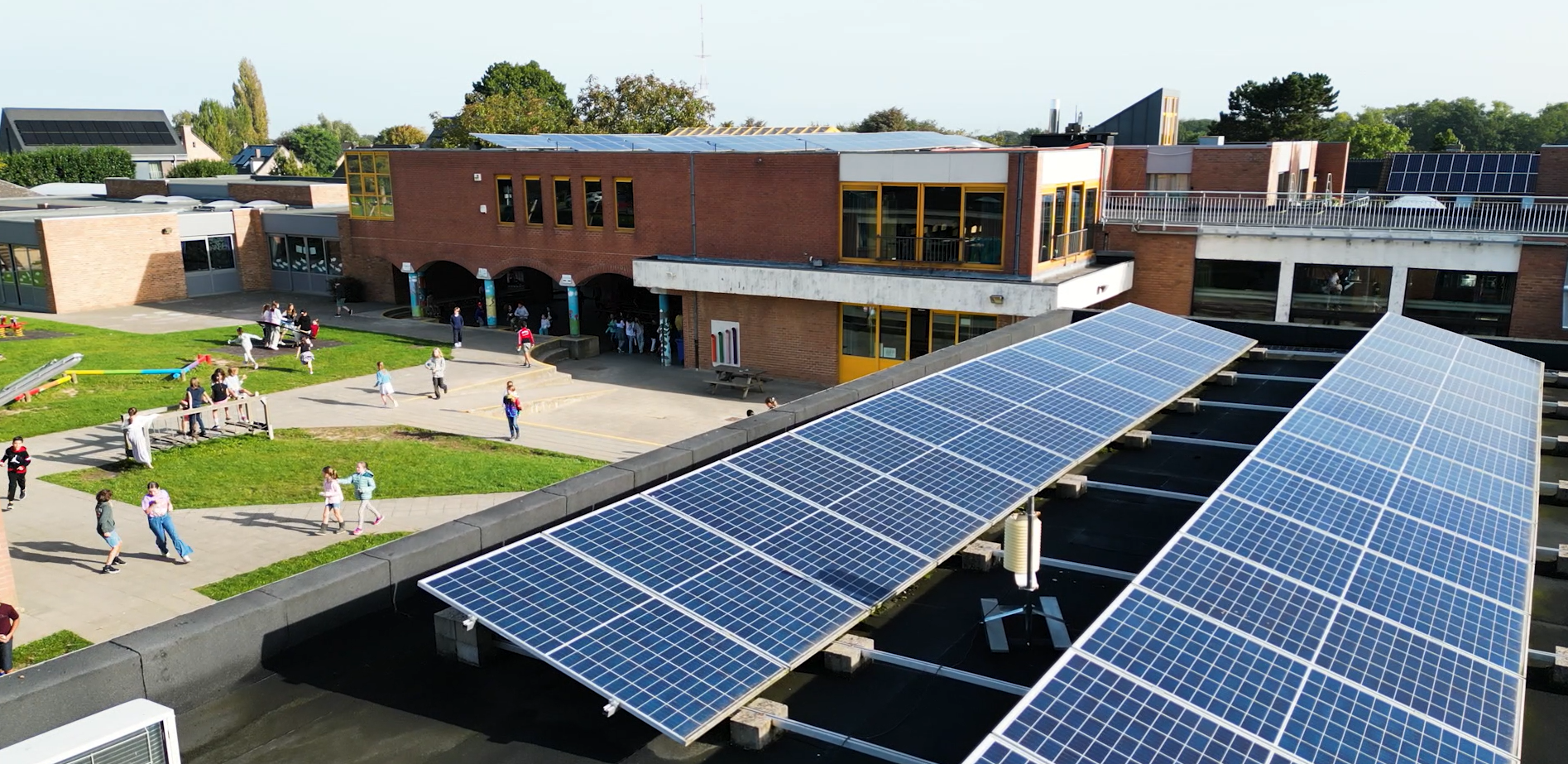
Good air quality is not just a question of health, it also plays an important role in students’ attention and concentration.
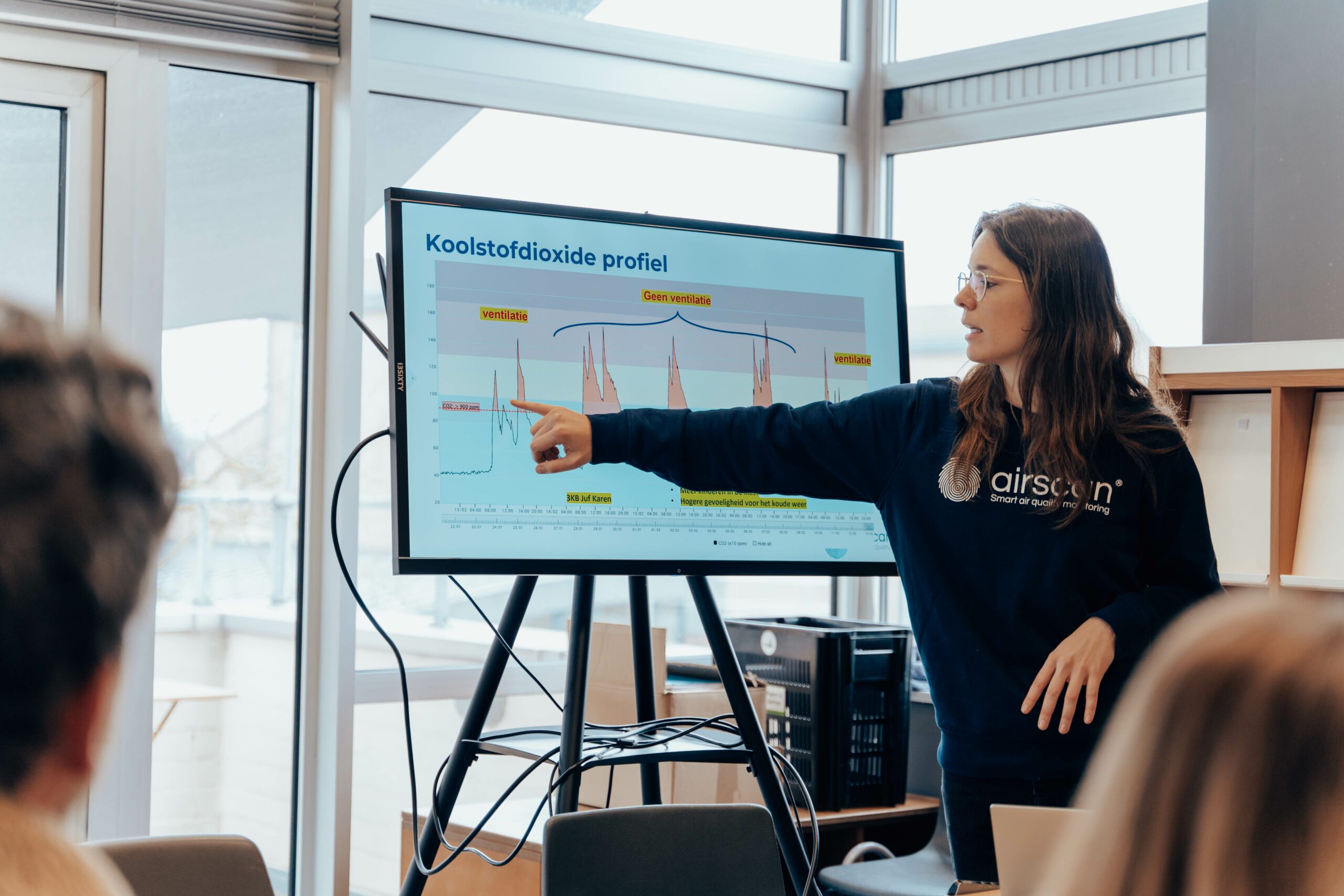
What struck you most about this project?
Tin: Good air quality is not only a matter of health, but also plays an important role in students’ attention and concentration. Thanks to the project, we have been able to identify pollution peaks (CO2, particles, volatile organic compounds), which will enable us to reduce or even eliminate them completely in the future.
Peter: We are pleasantly surprised by the quality of the outside air, which is better than expected. We also know, from a comparison of outdoor and indoor pollution, that our ventilation system manages to block a large proportion of particulate pollution.
Joris: That the results are not bad at all. Awareness-raising and the joint efforts of teachers and students are bearing fruit.
Latest Articles

School air quality: protect children today | Airscan
Children are more vulnerable to air pollution at school. Key Brussels data, effective measures (school streets, LEZ), and Airscan solutions: monitoring, smart ventilation, certification‑ready reporting.
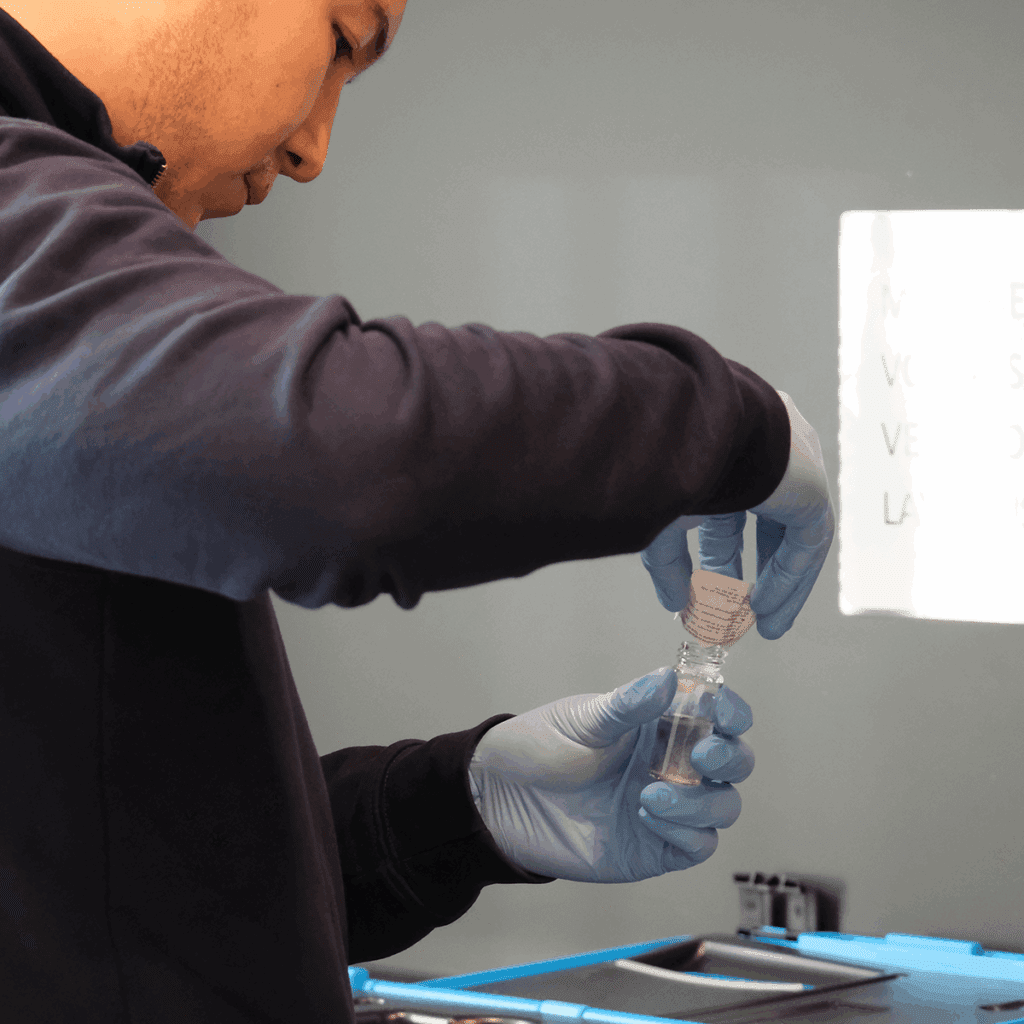
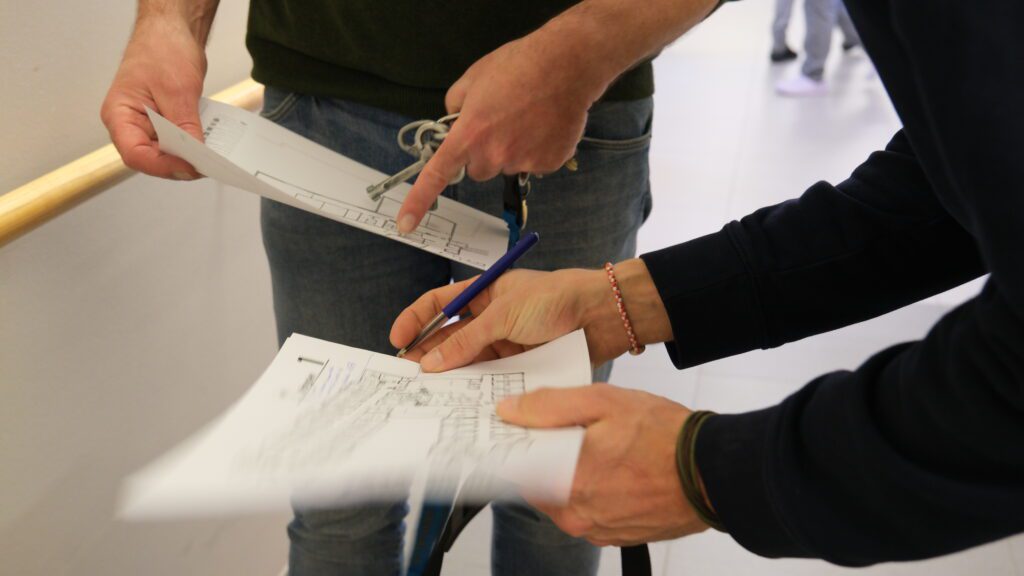
Ventilation Audits in Flanders Care Homes: Airscan’s 40‑Site Study on Indoor Air Quality
Airscan’s audit of 40 Flemish care homes uncovered critical ventilation issues: nearly 1 in 4 rooms exceeded safe CO₂ limits. With VEB and VIPA support, the study offers data-driven solutions to protect residents’ health.
